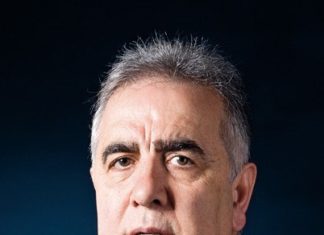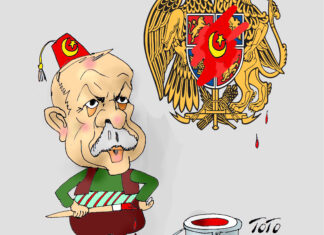The year 2018 was a tumultuous period for Armenia. In view of its precarious situation in the region, a lackluster economy and a war on its borders, many thought that Armenia could ill-afford any domestic upheaval. But despite those risks, change did come to Armenia because of the exasperation of its people living in poverty, lawlessness and hopelessness.
The ruling Republican party was well entrenched and it controlled all levers of power. Nikol Pashinyan’s My Step movement triggered the Velvet Revolution, which swept away the ruling Republican Party. People were driven to such desperation that they took the radical step of supporting a complete overhaul, believing that nothing could be worse than the conditions in which they were forced to live. The majority of people were against the old regime rather than for Pashinyan’s movement. Pashinyan, a journalist, took advantage of the popular discontent and he made his decisive move. He brought a wave of optimism which is conducive to creative thinking and positive action. That optimism needs to be channeled into realistic means to achieve promised changes and to put the country back on its track of development.
Pashinyan was elected as prime minister on May 8 by an antagonistic parliament which had tried to use any means to derail his course. Backed by popular support, Pashinyan and his revolutionary team stayed the course and were able to engineer snap elections last week. The Republican-controlled parliament cried wolf that Pashinyan was stealing the election while putting on a euphoric display, not allowing time for other parties to get organized. Of course, that was the name of the game and any one in his position, including the disgruntled Republicans, would have done the same and used the political vacuum to push ahead his or her agenda.
Finally, the elections took place on Sunday, December 9 offering a landslide victory to Pashinyan’s My Step alliance.
Armenia, like other post-Soviet republics, has not been able to form political parties based on ideology. This time around is no different; people have rallied around a charismatic leader, and the nature of politics will remain the same, driven by bread-and-butter issues rather than ideology.
However, Pashinyan delivered on the first installment of his promise by organizing fair and free parliamentary elections. A sober analysis of the situation is in order, before anyone questions the new leader’s future performance or the possibility that he may be biting off more than he can chew. He is bringing with him a young and educated class of legislators who have yet to grow as statesmen.








